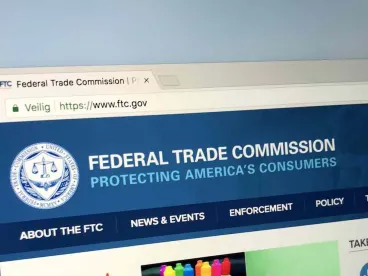Tapjoy, Inc., the operator of a mobile advertising platform that appears in certain mobile gaming applications, has settled Federal Trade Commission (FTC) allegations that the company deceived consumers by failing to provide them with promised rewards. Tapjoy’s platform allows mobile app users to interact with third-party advertisers and gain rewards, such as virtual currency, for completing certain tasks. In some cases, consumers pay real money and divulge personal information to earn the rewards.
In its complaint, the FTC not only charged that Tapjoy did not deliver the promised rewards, but also alleged that the company discouraged consumer complaints about the failure to pay rewards and did not respond to complaints. The FTC complaint refers to internal emails in which the company acknowledged that consumer complaints about unreceived rewards – in the hundreds of thousands – were “out of control.” In fact, the volume of complaints was so massive that, in 2017, Tapjoy allegedly made it difficult for consumers to submit complaints by blocking complaint submissions 24 hours after completion of an offer. In addition, until at least 2018, consumers who submitted complaints about not receiving virtual currency only had 72 hours to respond with proof that they had completed an offer or their complaint would be closed. Nonetheless, according to the FTC, Tapjoy continued to advertise prominently and falsely, without any qualification, that it would pay virtual rewards in exchange for the performance of advertised tasks.
Under the terms of the proposed Agreement Containing Consent Order, Tapjoy must clearly and conspicuously display the terms for receiving rewards. The Consent Agreement bars the company from expressly or implicitly misleading users about receiving rewards, including the requirements to receive rewards, when consumers will receive rewards, and any other material facts. In addition, the company must ensure that its third-party advertisers provide the promised rewards, investigate consumer complaints regarding nonpayment of rewards, and take action against advertisers that deceive consumers.
The vote to issue the proposed administrative complaint and to accept the Consent Agreement was 5-0. Commissioners Rohit Chopra and Rebecca Kelly Slaughter issued a joint statement in which they noted that mobile gaming is a fast-growing market in which revenues derive mainly from in-app purchases (including loot boxes, which they characterize as an “addictive phenomenon” that turn videogames into virtual casinos) and advertising. Against this background, advertising middlemen such as Tapjoy are “gatekeepers” that must be closely watched. Chopra and Slaughter commend the proposed settlement as reasonable to address Tapjoy’s practices, but they warn that “when it comes to addressing the deeper structural problems in this marketplace that threaten both gamers and developers, the Commission will need to use all of its tools – competition, consumer protection, and data protection – to combat middlemen mischief, including by the largest gaming gatekeepers.”





 />i
/>i
